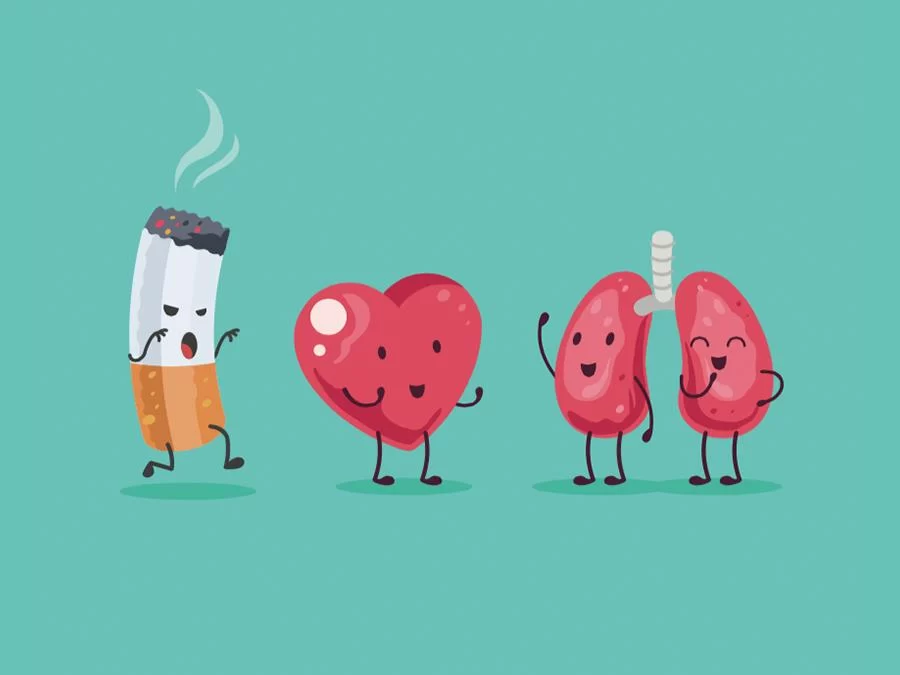Understanding the Connection Between Smoking and Heart Health
Smoking is one of the most significant risk factors for heart disease. The chemicals in cigarette smoke damage blood vessels, increase blood pressure, and reduce oxygen levels in the body, which can lead to the development of coronary artery disease, heart attacks, and stroke. Despite these well-known risks, millions of Americans continue to smoke, unaware of the profound impact quitting smoking can have on heart health. The good news is that even after years of smoking, the heart can begin to heal and become healthier when a person quits smoking. In this article, we will explore the science behind smoking’s harmful effects on the heart and how smoking cessation can dramatically improve cardiovascular health.

How Smoking Damages the Heart
Each time a person smokes a cigarette, harmful chemicals like carbon monoxide, nicotine, and tar enter the bloodstream and disrupt the normal functioning of the cardiovascular system. These chemicals can cause:
- Increased Blood Pressure: Nicotine raises blood pressure by stimulating the release of adrenaline, which causes the heart to work harder. Chronic high blood pressure is a major risk factor for heart disease.
- Reduced Oxygen Supply: Carbon monoxide from cigarette smoke binds with hemoglobin in the blood, reducing the amount of oxygen available to tissues and organs, including the heart.
- Damage to Blood Vessels: Smoking causes inflammation and damage to the blood vessels, making them narrower and less flexible, which impedes blood flow and increases the likelihood of clot formation.
- Increased Risk of Atherosclerosis: Smoking accelerates the buildup of plaque in the arteries, a condition known as atherosclerosis, which can eventually lead to a heart attack or stroke.
These effects put smokers at a significantly higher risk of heart disease, with studies showing that smoking is responsible for up to 30% of all cardiovascular-related deaths in the United States. Yet, quitting smoking can reverse many of these harmful effects, dramatically improving heart health.
Capital Health Medical Center – Hopewell
capital health medical center hopewell
1 Capital Way, Pennington, NJ 08534, USA

The Life-Changing Benefits of Quitting Smoking
When a smoker quits, the heart begins to benefit almost immediately. Within just 20 minutes of quitting, blood pressure and heart rate drop to normal levels. After a few weeks, circulation improves, and within a few months, lung function increases, making it easier to exercise and maintain a healthy lifestyle. Here are some of the key benefits of quitting smoking for heart health:
1. Improved Circulation and Blood Flow
One of the first improvements smokers notice after quitting is better circulation. Blood vessels begin to heal and function more effectively, which helps reduce the risk of developing peripheral artery disease, a condition where the blood vessels in the legs and arms become narrowed or blocked. With improved blood flow, the heart can deliver oxygen and nutrients more efficiently to the organs and tissues, improving overall health.
2. Lower Risk of Heart Disease
Within just one year of quitting smoking, the risk of heart disease drops by half compared to that of a smoker. Over time, the risk continues to decrease as the heart and blood vessels heal. According to the American Heart Association, individuals who quit smoking by the age of 30 can reduce their risk of developing heart disease to that of someone who has never smoked. The risk continues to decline even after age 40, although the earlier one quits, the better the outcomes.
3. Reduced Blood Pressure and Heart Rate
Nicotine and other chemicals in cigarette smoke cause the blood vessels to constrict, raising blood pressure and heart rate. By quitting smoking, blood pressure returns to normal, reducing the strain on the heart. This also decreases the likelihood of developing hypertension, a key factor in the development of heart disease and stroke.
4. Better Cholesterol Levels
Smoking negatively affects cholesterol levels, particularly by increasing the levels of "bad" LDL cholesterol. This contributes to plaque buildup in the arteries, increasing the risk of heart attacks and strokes. When you stop smoking, your cholesterol levels improve, and the ratio of "good" HDL cholesterol to "bad" LDL cholesterol improves, further reducing the risk of cardiovascular disease.
5. Reduced Risk of Blood Clots
Smokers are at an increased risk of developing blood clots, which can block blood flow and lead to heart attacks or strokes. After quitting, the risk of blood clot formation begins to decline, as the body’s ability to break down clots improves. This reduces the likelihood of suffering a cardiovascular event.
Real-Life Success Stories: How Quitting Smoking Saved Lives
For many people, the decision to quit smoking is a life-changing experience that not only improves heart health but also saves lives. Consider the story of Sarah, a 42-year-old woman who had been smoking for over 20 years. Despite a family history of heart disease, Sarah didn’t realize the extent to which her smoking was affecting her heart until she experienced chest pain during a routine checkup. After being diagnosed with early signs of coronary artery disease, Sarah decided to quit smoking and adopt a healthier lifestyle. Within months, her blood pressure stabilized, and her cholesterol levels improved significantly. Today, Sarah is living a smoke-free life and has avoided the heart disease that claimed the lives of several relatives.
Similarly, James, a 58-year-old man who had smoked for 35 years, was shocked to learn that he had developed blockages in his coronary arteries. He had a heart attack shortly after his diagnosis, but after receiving medical treatment and quitting smoking, James saw significant improvements in his heart health. His doctors were amazed at how quickly his arteries began to heal, and he felt better than he had in years. James now encourages other smokers to quit, sharing his story to raise awareness of the importance of smoking cessation.
How to Quit Smoking and Protect Your Heart
Quitting smoking is not easy, but with the right support and determination, anyone can successfully quit and improve their heart health. Here are some tips to help you along the way:
- Seek Professional Help: Many smoking cessation programs offer support through counseling, medications, and nicotine replacement therapies. These tools can help reduce withdrawal symptoms and cravings.
- Stay Active: Physical activity can reduce the urge to smoke and improve cardiovascular health. Exercise releases endorphins that help combat stress and improve mood, making it easier to stay smoke-free.
- Find Support: Joining a support group or talking to friends and family about your decision to quit can provide motivation and encouragement.
- Stay Positive: Quitting smoking is a process, and it’s normal to face challenges along the way. Celebrate small victories and keep your long-term goal of better heart health in mind.
With determination, support, and the knowledge that quitting smoking can save your heart, anyone can take the steps toward a healthier, smoke-free life.






















Deborah Heart and Lung Center
deborah heart and lung center
200 Trenton Rd, Browns Mills, NJ 08015, USA